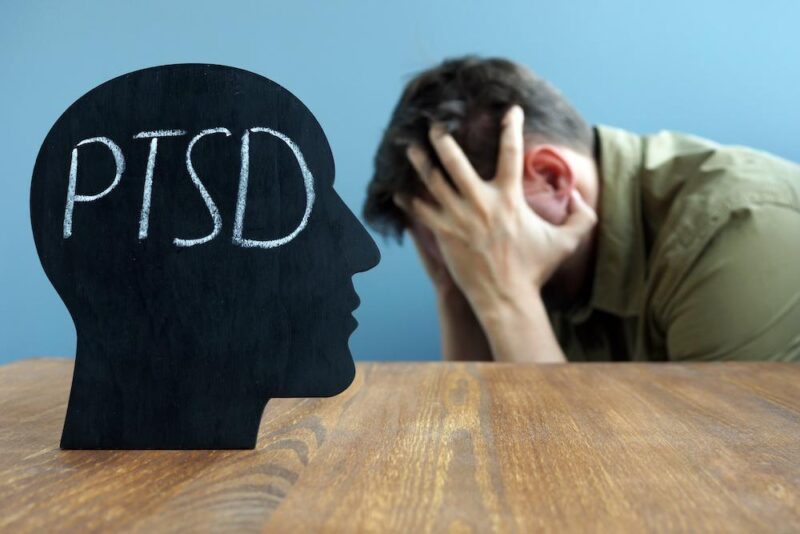PTSD Recovery: How Support Systems Help Reclaim Stability and Strength?

Post-Traumatic Stress Disorder (PTSD) affects individuals across diverse backgrounds, often leaving deep emotional and psychological scars. Navigating life after trauma can be overwhelming, but structured support plays a vital role in healing. Programs such as PTSD support by Mass Wellness emphasize creating safe, therapeutic environments where individuals can gradually rebuild their mental and emotional resilience. These support systems focus on empowering survivors through practical tools and consistent guidance across several key areas of recovery.
Processing Traumatic Memories in a Safe and Supportive Environment
One of the first steps toward recovery involves addressing the trauma at its core. Many individuals with PTSD avoid revisiting painful memories due to fear, shame, or emotional overwhelm. In a structured and empathetic environment, however, these memories can be processed at a manageable pace. Supportive settings guided by trained professionals encourage individuals to talk through their experiences in ways that reduce emotional intensity and promote clarity.
This process does not erase the trauma but allows individuals to reinterpret its significance. Gradually, the overwhelming power of these memories lessens, helping survivors move from re-experiencing the trauma to understanding and integrating it into their broader life story.
Managing Stress and Anxiety through Proven Coping Techniques
PTSD is closely linked to chronic stress and heightened anxiety responses. Survivors often experience sudden panic, irritability, or emotional shutdowns triggered by seemingly ordinary stimuli. Through support programs, individuals are introduced to practical coping mechanisms such as breathing exercises, mindfulness techniques, and cognitive reframing.
These techniques aren’t just quick fixes—they’re meant to help people stay grounded and steady in the long run. Over time, individuals learn how to recognize signs of escalating anxiety and respond in ways that are calming and constructive. With regular practice, these techniques become reliable tools to navigate daily challenges more confidently.
Improving Sleep and Reducing Nightmares with Mindfulness and Relaxation Practices
Disturbed sleep is a common symptom of PTSD. Nightmares, frequent awakenings, and insomnia contribute to a cycle of emotional exhaustion. PTSD support often includes sleep-focused strategies such as guided meditation, progressive relaxation, and sensory grounding exercises.

These practices help calm the mind and body, making it easier to settle into a deeper, more restful sleep routine. With time, many individuals report experiencing fewer nightmares and waking up feeling more rested. Better sleep has a ripple effect—improving mood, mental clarity, and the capacity to handle stress throughout the day.
Rebuilding Trust and Relationships by Addressing Emotional Triggers
Trauma can make it difficult to trust others, even those closest to an individual. Individuals with PTSD may become withdrawn or find themselves reacting strongly to situations that remind them—consciously or unconsciously—of their trauma. PTSD support helps survivors identify these emotional triggers and learn how to respond to them with self-awareness and communication skills.
Whether through one-on-one therapy or group sessions, individuals begin to re-engage in their social lives in ways that feel safe and empowering. As emotional regulation improves, so does the ability to form healthier, more trusting relationships.
Regaining a Sense of Purpose and Control over One’s Life
The aftermath of trauma can leave individuals feeling directionless or powerless. A big part of healing from PTSD is getting back that sense of control and finding meaning in everyday life again. Support systems encourage individuals to rediscover hobbies, reconnect with goals, and build daily routines that bring structure and fulfillment.
Even small achievements like setting and completing a daily task can help rebuild confidence. Over time, survivors begin to see themselves not only as people who endured trauma but as individuals actively shaping their future with purpose and strength.
Conclusion
Healing from PTSD is a deeply personal journey, but it can be made significantly more manageable through consistent, structured support. Programs like PTSD support by Mass Wellness provide individuals with tools to process trauma, reduce anxiety, improve sleep, and regain emotional balance. Through guided efforts and supportive environments, survivors can rebuild their lives with greater resilience, reclaiming control and rediscovering hope along the way.






